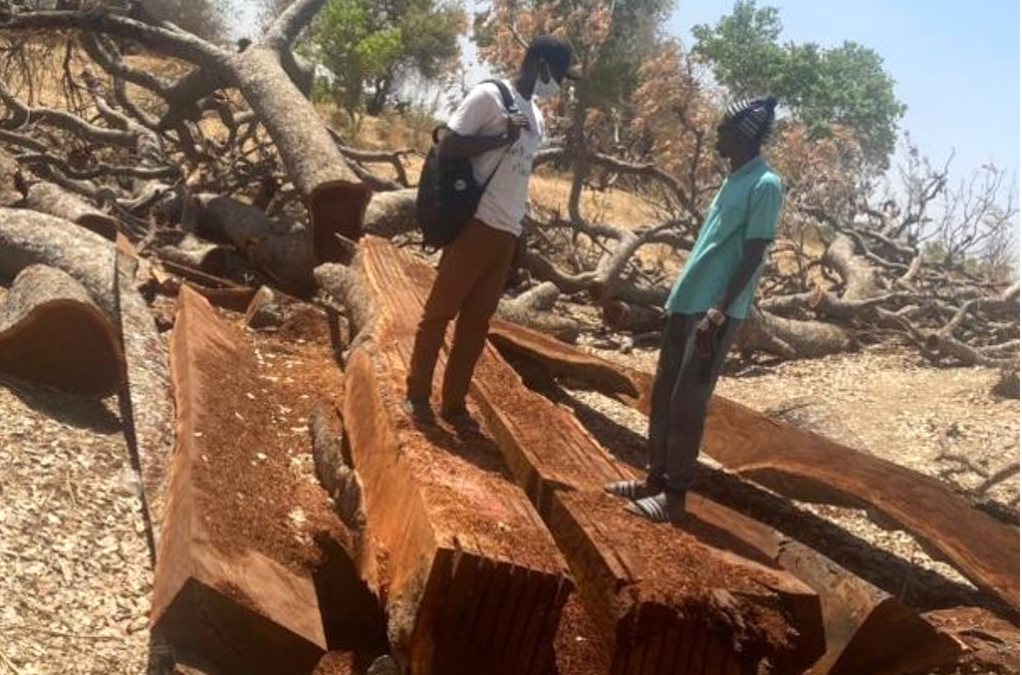The residents of Njau Sawalo, Upper Saloum, were horrified, incensed, and disheartened to see a bunch of workers felling their mahogany trees. The community reacted quickly, as they believed that the village head, or Alkalo, was not aware of the activity. They quickly got in touch with a member of the National Assembly to find out who had permission to take down the tree.
The regional forestry officer, Lamin Sawaneh, defended the purported tree-falling incident in a letter to Hon. Alhagie Mbowe, claiming that the actions were carried out in compliance with the guidelines provided in the 2018 Forest Act. He maintained that since the men’s activities complied with the law, they did not commit any crimes.
But when it was later revealed that the regional forestry officer had received D5,000 from timber sellers via Wave, suspicions were aroused. This information sparked worries about possible corruption in the forestry division and how it would affect illicit logging operations.
In a second occurrence, residents in Manduar, Kombo Central, were surprised to hear that a forest they had planted in 1999 had been sold to a real estate corporation. Despite reporting the incident to the chief and the Forestry Department, no action was taken. The group has paperwork signed by their alkalo and chief stating that the forest belongs to them. Nonetheless, the real estate corporation has begun to assign plots, and some people have already begun developing their residences.
These incidents highlight the growing concerns over timber trafficking and illegal deforestation in The Gambia. The exploitation of natural resources without proper authorization not only threatens the environment but also undermines the rights of local communities. Authorities are urged to investigate these cases thoroughly and take appropriate action to protect the country’s forests and the communities that rely on them.










